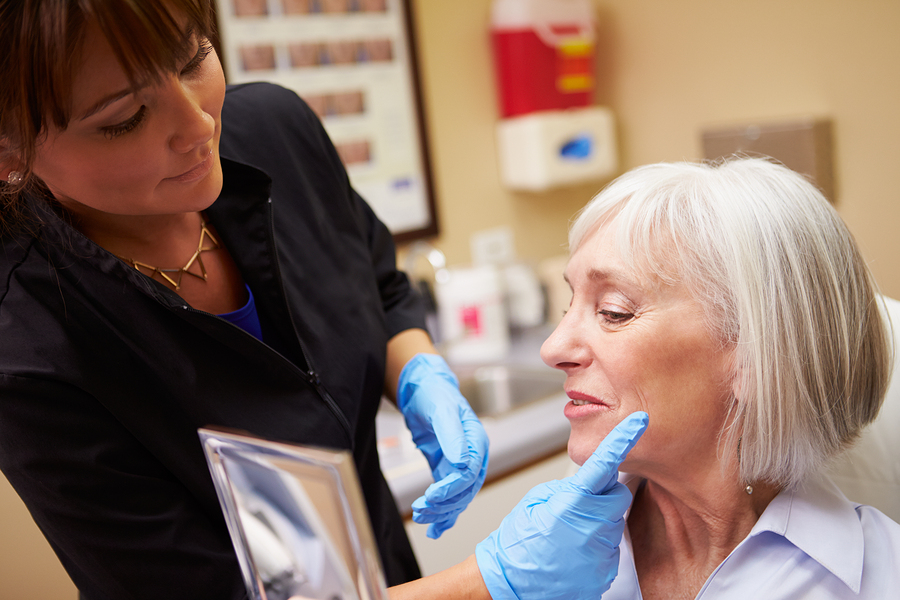Considering Botox®? Here’s What You Need To Know
Some two million Botox® treatments have now been carried out in Europe, making Botox® injections a popular alternative to cosmetic surgery for people who want to smooth their skin.
We take a look at where to find the facts and information you need to make a safe and informed decision if you’re considering getting Botox®.
What is Botox®?
The drug Botox® is made from the bacterial toxin Botulinum. Botulinum is one of the most lethal toxins known, and can cause fatal botulism poisoning. However, in small, measured doses, the drug is used for a range of health and cosmetic treatments. It has been used to treat chromic migraine, muscular disorders, eye problems, incontinence and severe sweating.
Nowadays, it’s commercially used as a non-surgical cosmetic procedure, which paralyses the facial muscles in order to smooth out frown lines, crows’ feet and wrinkling around the mouth. Read a factsheet on the British Association of Aesthetic Plastic Surgeons website for more information on Botox® and common places to get the treatment done.
Botox® procedures involve the skin being cleaned then injected in various locations to smooth out the unwanted lines and wrinkles. The results are not instant, but take effect within three to five days of treatment, and last for three to four months.
Botox® treatments normally cost around £200 a session.
How To Find A Botox® provider
Botox® is widely available for people interested in non-surgical cosmetic treatments. It’s offered at many clinics and beauty salons.
Botox® needs to be stored at a certain temperature and should only be administered in a sterile, clean and safe environment, never in the likes of a nail salon, tattoo parlour, or home.
While Botox® is not invasive, it does have risks and side effects, and the NHS recommend that you only have it carried out by a medical practitioner like a doctor or nurse in a proper clinical environment, and not by an untrained beauty therapist. The practitioner must know precisely how much Botox® to inject, and where to inject it, otherwise results might not look natural and could be unsafe.
Don’t be afraid to ask the person administering Botox® treatment about their qualifications and experience. They should meet you face to face to discuss your medical history, allergies, and let you know the possible side effects of the drug.
Unfortunately the procedure isn’t regulated in the same way as surgical procedures, which means that many practitioners lack medical qualifications. However, the Treatments You Can Trust website has a database that will help you find appropriately trained, safe Botox® providers whose practices and facilities have been checked against meticulous standards.
What are the side effects?
Botox® injections are associated with less serious risks than cosmetic surgery, but there can be side effects.
Botox® is not suitable for pregnant or lactating women, people allergic to eggs, or individuals with neuromuscular disorders.
Common temporary side effects of Botox® can include:
- Flu-like symptoms – generally, such symptoms will disappear after 24 hours of injection
- Bruising, swelling and redness – particularly around the injection site
- Drooping – you might find that your skin goes droopy and weak after being injected, but this normally wears off over time
Serious side effects are rare, and risks are vastly reduced if Botox® is administered by a proper healthcare professional, but can include:
- Vision problems – such as blurred or double vision
- Breathing problems – particularly if the neck is injected
- Infection – from less sterile environments
- Anaphylaxis – severe allergic reactions can happen
- Physical damage – such as paralysis of the skin in the wrong area from unskilled practitioners
If you do have a Botox® injection and experience any serious side effects, it’s vital that you seek medical help. Find out more about the side effects of Botox® on the NHS website.
Of course, if Botox® isn’t for you then there are other less invasive alternatives like microdermabrasion, laser treatments, and collagen renewals.
Have you ever considered Botox®?
Disclaimer
All content on Silversurfers.com is provided for general information only, and should not be treated at all as a substitute for the medical advice of your own doctor or any other health care professional. Silversurfers will not be responsible or liable for any diagnosis made by a user based on the content on www.silversurfers.com and we are also not liable for the content of any external websites or links from or to Silversurfers to any other websites. Please always consult your own doctor if you’re in any way concerned about any aspect of your health.
Rachel - Silversurfers Assistant Editor
Latest posts by Rachel - Silversurfers Assistant Editor (see all)
- Get Ready for Stir-up Sunday - November 22, 2024
- Warming Soups - November 15, 2024
- What’s your favourite scary film? - October 26, 2024
- Easy Traybakes for National Baking Week - October 14, 2024
- Practical tips for living with arthritis - October 11, 2024





















